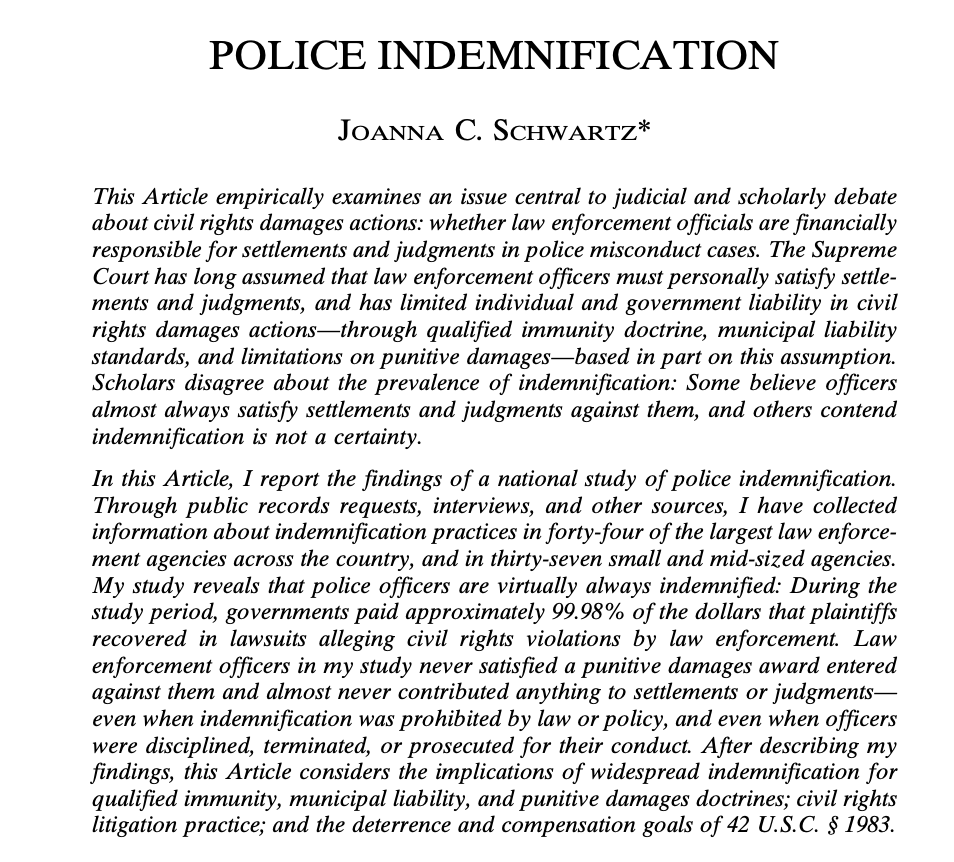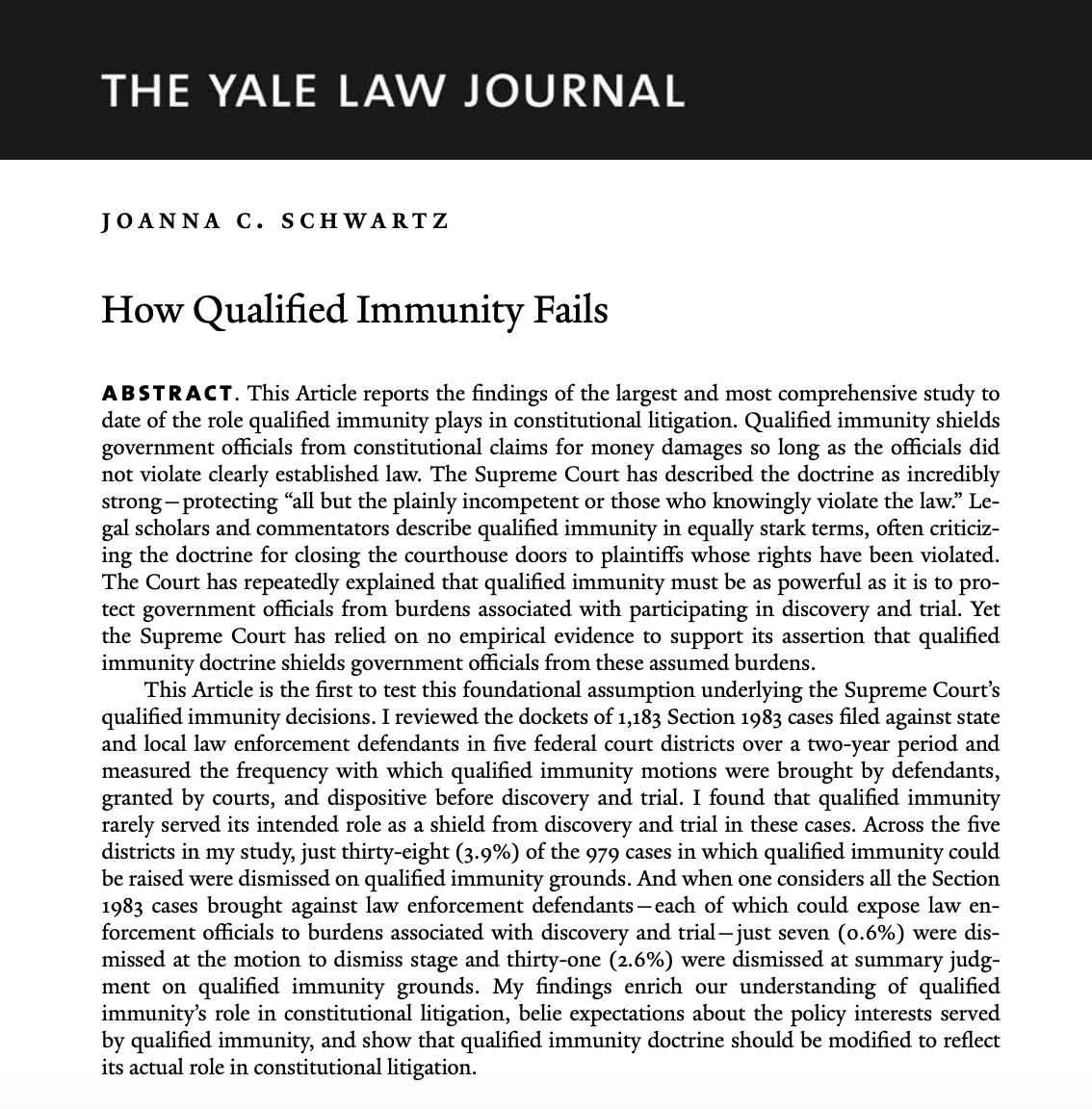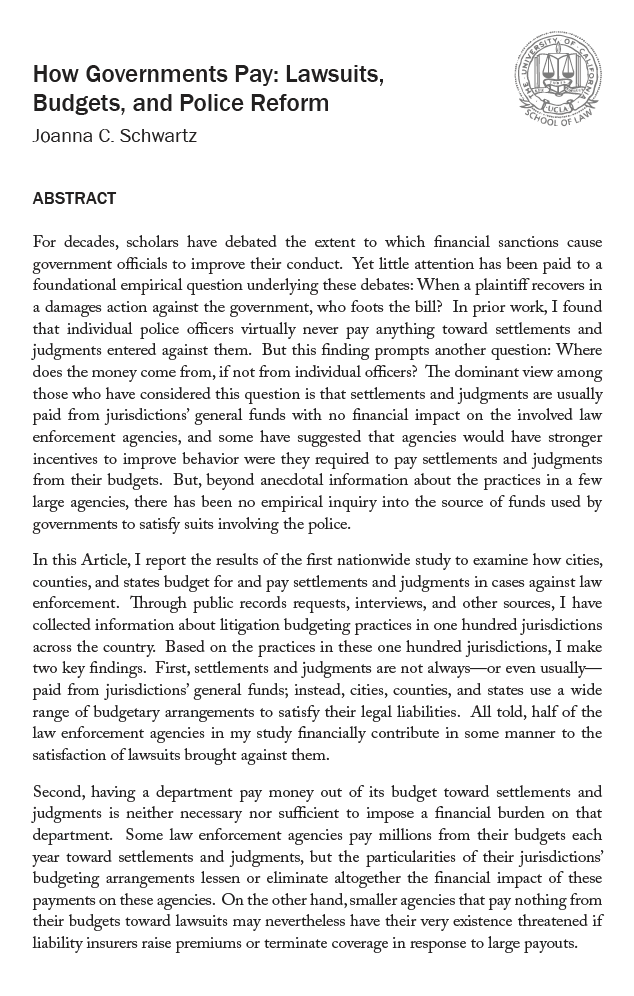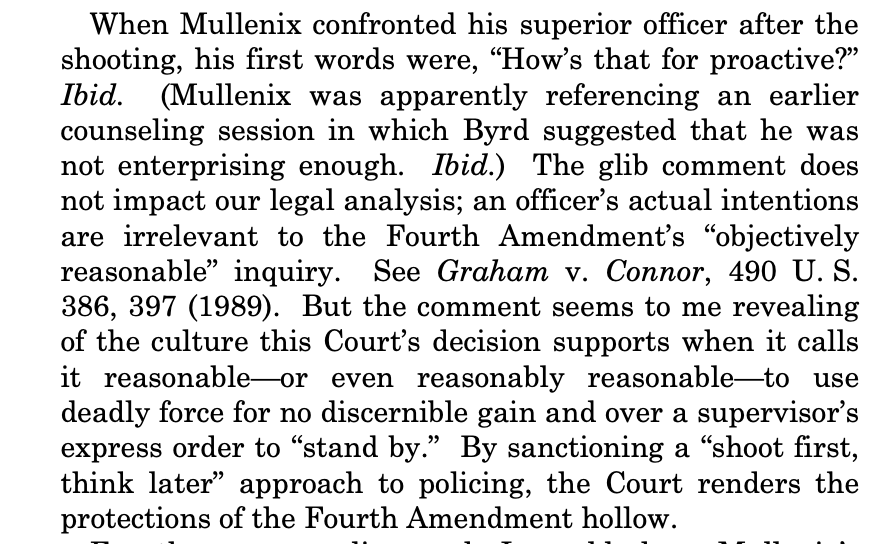
Thrilled that my newest article, "Qualified Immunity's Boldest Lie" is now in print. Many many thanks to the fabulous @UChiLRev editors who worked on the article.
lawreview.uchicago.edu/publication/qu…
What IS qualified immunity's boldest lie? Glad you asked. (Thread.)
lawreview.uchicago.edu/publication/qu…
What IS qualified immunity's boldest lie? Glad you asked. (Thread.)

To defeat QI, plaintiffs have to find prior cases with virtually identical facts. The SCT says these factually analogous cases are necessary to notify officers about the illegality of their conduct. But officers aren't actually educated about the facts and holdings of most cases.
I've reviewed 100s of use of force policies, training
outlines, and briefing materials provided to California officers, and they clearly show that officers are not notified of the facts and holdings of cases that clearly establish the law for qualified immunity purposes.
outlines, and briefing materials provided to California officers, and they clearly show that officers are not notified of the facts and holdings of cases that clearly establish the law for qualified immunity purposes.
Instead, officers are taught the general principles of the Supreme Court's use of force cases - Graham and Garner - and then are trained to apply those principles in the widely varying circumstances that come their way.
Even if departments made more effort to educate their officers about court decisions, the expectations of notice & reliance baked into QI doctrine would be unrealistic. There could never be enough time to train officers about all court cases that "clearly establish" the law...
...and even if officers were trained about the facts and holdings of some portion of these cases, there is no reason to believe that officers would analogize or distinguish situations rapidly unfolding before them to the court decisions they once studied.
There is a growing consensus that qualified immunity doctrine is legally unsound, unnecessary to shield government officials from the costs and burdens of litigation, and destructive to police accountability efforts. This Article reveals another reason to reconsider the doctrine.
• • •
Missing some Tweet in this thread? You can try to
force a refresh






